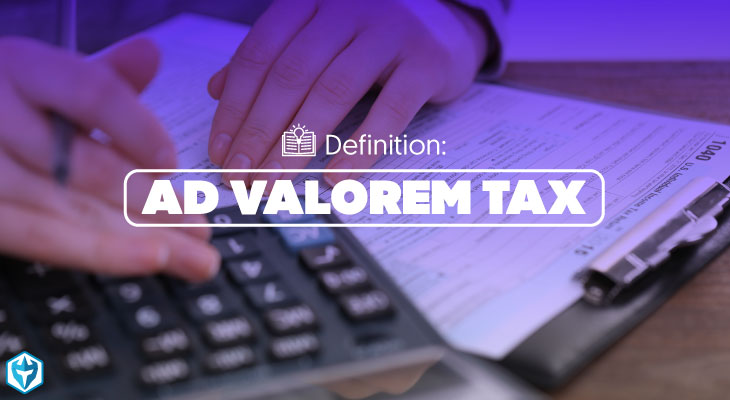An ad valorem tax is any tax that is based on the assessed value of an asset or set of assets. Ad valorem taxes are a method of periodically taxing assets and properties, as opposed to a transactional tax that only taxes a good or service once at the time of exchange.
Ad valorem taxes are so commonly associated with real estate properties that they are more widely known as simply ‘property taxes’.
Common and Uncommon Ad Valorem Taxes
The most common ad valorem taxes are on real estate property. A government assessor estimates the value of a property, and then assigns an annual tax charge based on the assessed value and the applicable ad valorem tax rate.
Most taxes beyond real estate are done at a transactional level. However, there are some other situations where ad valorem taxes do apply. One common example is an ad valorem tax on a company’s stock of imported goods.
Assessed Value
The most common approach to assessing the value of an asset for an ad valorem tax is to look for the ‘fair market value’, which involves a comparison between similar assets that were recently sold. For example, houses are usually assessed based on the recent sale of other similar properties in the same or similar neighborhoods.
However, this fair market value approach does not always work. On occasion an asset will be so rare or obscure that there is not an adequate market to draw information from.
In these situations an assessor will apply a number of various means for determining the assset’s value for taxation purposes, but this assessed value should not be interpreted as a likely value that would occur in the event of a sale.
Final Thoughts
Ad valorem taxes are a less common alternative to transaction taxes that periodically tax the owner of an asset based on the assessed value of that asset. It is important for day traders to understand the nature of ad valorem taxes when valuing companies that own assets where this form of taxation is applicable.


